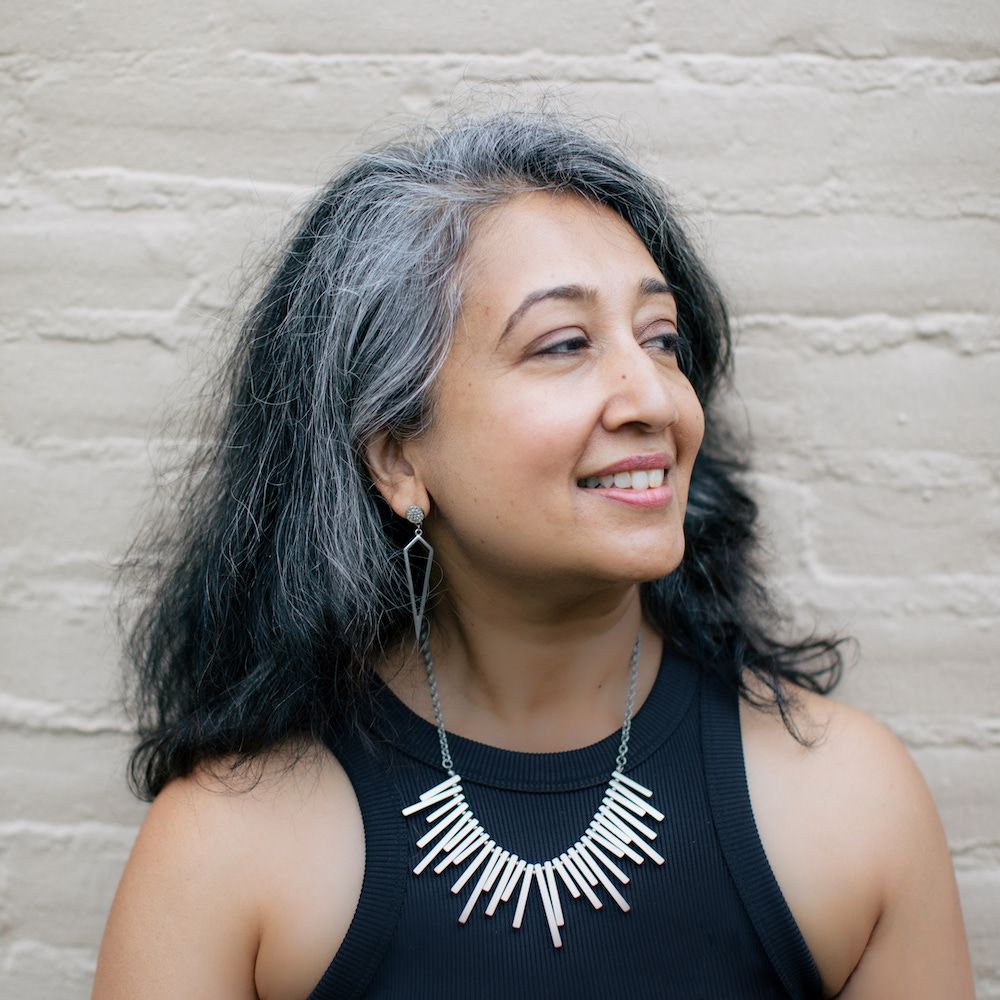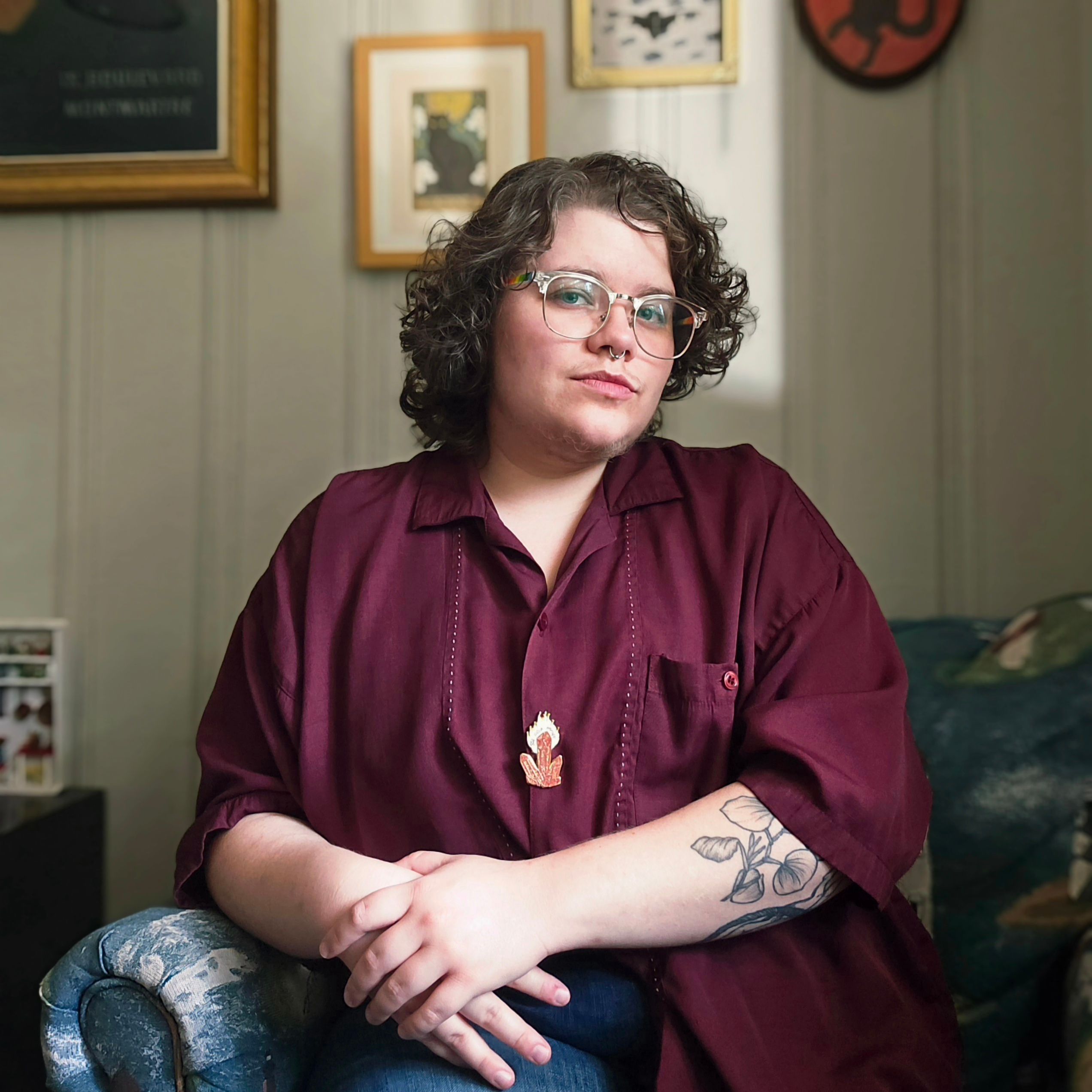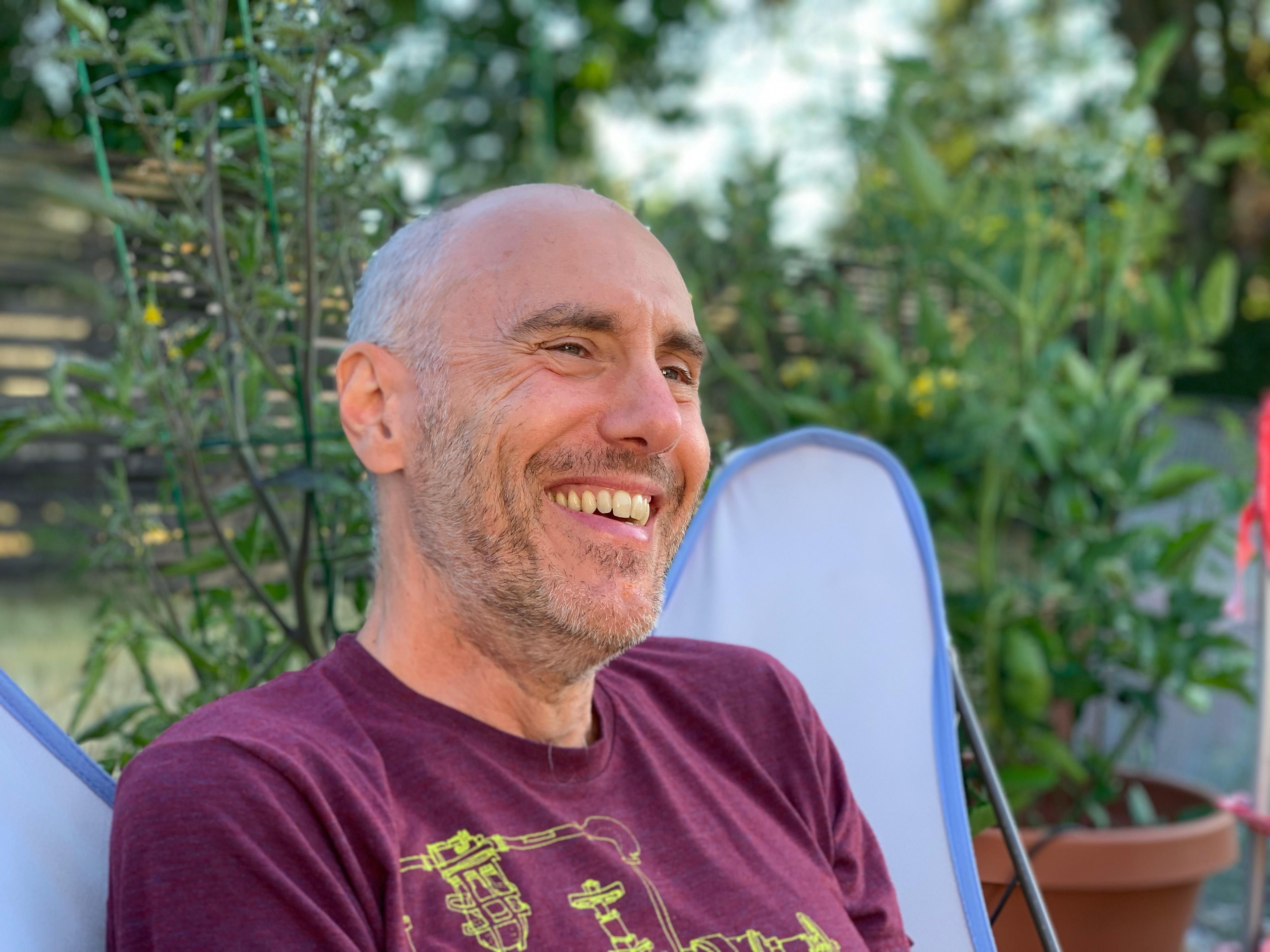In May 2022, I met Michael Chang at a reading for The Broadkill Review. At that event, Michael, or MC to those close to them, read eight or nine short poems, clapping enthusiastically for themself along with the audience right after each poem’s conclusion. I immediately thought, Wow, this person is fun! Michael has a wild, friendly clapping style. Their writing is similarly playful, although it is also witty and explorative and honest. Reading Michael’s work is like eavesdropping on the inner monologue of your most complex yet playful friend. Michael Chang’s second full-length collection of poetry, Almanac of Useless Talents, was published in the fall of 2022 by Clash Books, following 2021’s Boyfriend Perspective (Really Serious Literature). Chang is keeping up their pace: Their upcoming collection, Synthetic Jungle, will be released on March 15, 2023 by Northwestern University Press. I recently spoke with Michael about their ideas on structuring poems, the importance of finding your own style, poems that aren’t ‘poem-y,’ and what they hope for the future of poetry.
Max Kruger-Dull: I’d like to talk about how you form your poems. Perhaps a good way to get into that is by talking about what you include in them. Within your poems, you often slip quickly in and out of pop culture and historical references. You sometimes pick up a reference then put it right back down. This seems central to your poetry. How do you think about dispersing these references that connect to the outside world?
Michael Chang: It’s like a soup, and I throw everything in there. I throw the references in with everything else. There are a couple layers, I’ve found. One layer of course is what content makes sense for the particular poem. The other layer is how the reference looks on the page, how it flows, what seems right for that moment in the poem. It’s not always precise. I don’t really go searching for parts of the soup. It’s just all put through a kind of centrifuge.
MKD: I’m curious whether you think about what makes a poem of yours a Michael Chang poem? It seems like you do. It seems as if you think it’s good for writers to have a sense of what makes a poem theirs.
MC: Yes, I think that’s important and it’s also important to know how your poems are made. Mine tend to be created in two main ways. One, I start from an image in my head. These poems tend to proceed more cinematically, some people like to say “narratively” but I think all my poems move narratively with their own kind of logic. Here’s an example of starting from an image: “sitting here in my nightgown / not liking wut the world has become” or “hand me a frog / tell me not to squeeze too tight.” And two, I begin with a line or two that I want to use, usually a first line or closing line. Those poems tend to be propelled by a kinetic kind of wordplay. The text is a motor. Like, “somebody throw a net on that sea lettuce / something warm to dip ur tongue in.”
MKD: I like that. So a Michael Chang poem grows from a Michael Chang image or a Michael Chang phrase. I think what also makes a Michael Chang poem is a sense of open-endedness. A reader really needs to bring themselves to the poems in order to grasp onto them. I’m curious how you think about leaving space for the person interacting with your poems.
MC: Readers instinctively search for meaning, of course, and often want some coherent narrative. I’m not saying my poems don’t have a clear narrative. But how my poems are pieced together is not very straightforward in most cases. The narrative gets jumbled in the centrifuge or in the making of the soup. So in my poems I hope readers get to go on their own journeys and pick up what they need at their own pace. I’m against the idea of me, the poet, being the leader. I like there to be self-discovery. And I think any meaning a reader finds is also affected by the speed at which my books are read. I have some readers tell me they read my books in a single sitting and others who really take their time.
MKD: Back to your references for a moment. We’ve mentioned your pop culture and historical references. But you also make references to different cultures—queer culture, Chinese culture. You use Chinese words in the titles of many of your poems. I’m curious how you think about including details the general reader won’t understand. Do you think there’s something to be gained from not knowing, from missing out on a reference?
MC: Yes, a sense of unease. I want to create poems that start from a place of challenging assumptions, that introduce people to or confront them with something that’s not familiar, or not completely familiar. That’s disorienting in a good way. It’s provocative in a sense, and I like that. I like people to feel on their toes.
MKD: Do you try to bring that same spirit when choosing an order for a poetry collection?
MC: A lot of people are taught to agonize over the order of a collection. In general, I think that’s more trouble than it’s worth. Though I like when poems lead into each other, like when the last line of the previous poem leads into the next poem in a collection. I think that’s fun. But usually, I don’t read the titles of other people’s poems. I mostly find it odd which poems people choose to start and end their collections, which poems they choose as their bookend poems. There’s no one way to order a collection and, for me, it’s not worth being too prescriptive and saying to a reader, ‘You should read this poem and then this one.’
MKD: You tend to gravitate toward interesting structure and formatting choices. "Hustlin’ Poppies" is structured with simple brackets breaking up every couplet. "Dewey Cheatem & Howe" appears as two columns of text, with a string of centered commas separating the columns. You use slashes and line breaks and centering in interesting ways. How do you think about relating your structure choices to your text? Are those choices often very intentional or is there a level of looseness that comes into play?
MC: It’s loose in the sense that it’s fun, not loose in the sense that it’s random or thoughtless. I usually start a poem with a vague sense of how it’ll look on the page. And I try to think of structures I haven’t explored before. Variety in poem structure is important in a collection. A lot of my choices are about being visually interesting. Lately I’ve been using stage-direction-esque things—for example, [breathily]—which I feel go a long way toward enriching a poem, especially a shorter poem. Short poems are great snapshots and with a stage direction you get a fresh way of quickly setting the scene. Sometimes fitting two small poems together works well for me, creating a sort of diptych. I like to think of writing a poem as a practice of customization. There are endless options with how to customize a poem. People have ideas about what a poem should be, and an interesting structure is a way to disrupt people’s expectations. An interesting structure primes the reader for interesting material.
MKD: As we’ve alluded to, many of your poems have an air of casualness. I think I remember hearing you describe your poems as “poems that are not poem-y.” Can you talk about that idea of writing poems that sit outside of what people think of as the traditional poetry world?
MC: A lot of barriers are being broken down in poetry, deliberately and consciously. In academia, people are warming up to the idea of boundless poetry and genre mixing. As a poet, you can take lessons and sensibilities from fiction or other genres. If you read widely, you’re going to find yourself being naturally experimental. It’s hard to read a lot and still be confined to strictures like ‘this is what a poem should be.’ If we’re serious about getting people interested in poetry and talking about serious issues through poetry, you have to think outside the traditional. It’s a kind of openness. And that openness is a way to create a sense of candor with the reader, a way to let them know that what you’re writing is urgent.
MKD: What do you hope for the future of poetry?
MC: I hope people continue to do new things. And in my own writing I poke fun at some of the people who are unwilling to try new things, the people who write the same poem over and over again without adding in new observations or realizations or points of view. It’s important to me for people to keep pushing, for their second books to sound different from their first books, for people to grow. That doesn’t mean that the same themes shouldn’t be covered. I’m talking more about really working to find new insights and keeping the themes interesting to yourself and the reader. So in general I’d like to see people be a little bolder.
Michael Chang (they/them) is the author of several collections of poetry, including Boyfriend Perspective (Really Serious Literature, 2021), Almanac of Useless Talents (CLASH Books, 2022), and Synthetic Jungle (Northwestern University Press, 2023). Tapped to edit Lambda Literary's Emerge anthology, their poems have been nominated for Best New Poets, Best of the Net, and the Pushcart Prize. They were awarded the Poetry Project's prestigious Brannan Prize in 2021, and serve as a poetry editor at the acclaimed journal Fence.
Max Kruger-Dull holds an MFA in Writing from Vermont College of Fine Arts. His recent work has appeared or is forthcoming in The MacGuffin, Litro Magazine, the tiny journal, The Broadkill Review, Baby Teeth Journal, and others. He lives in New York with his boyfriend and two dogs.








